With all the violence and conflict in the world, it's refreshing to know that people from all different demographics are able to sit down together around the world to have an open conversation.
That's what Ronni Abergel, 42, has achieved since launching the Human Library in Copenhagen in 2000. Just as you would at a library, you can check out a "book" on a certain topic for an allotted period of time. The only difference is that the "book" is actually a person who you can have a conversation with — and learn from.
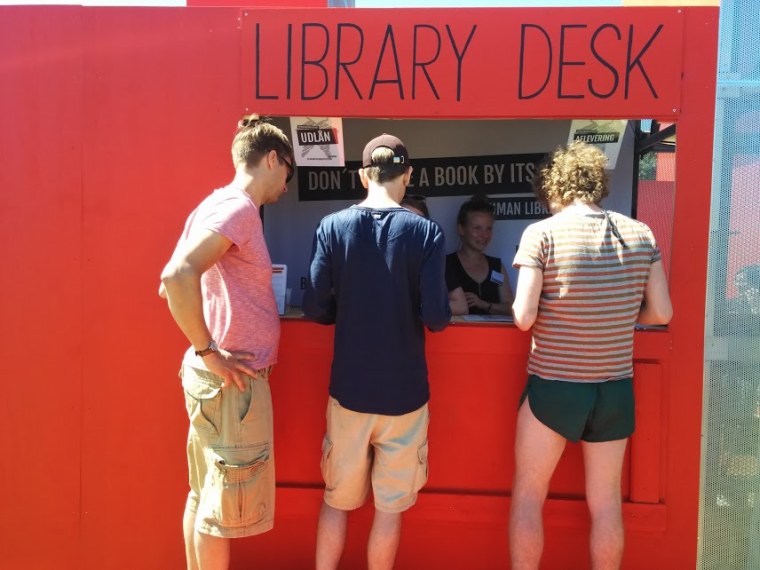
"I figured that if we could make people sit down with a group attached to a certain stigma they don't like or even know about for that matter, we could diminish violence," Abergel told TODAY.com.
The type of books you can borrow range from someone who is transgender, deaf, blind, obese or homeless to a person with autism or even a refugee. In the 16 years since its inception, Abergel brought the concept to more than 70 countries, including the U.S.
Growing up in Copenhagen, Abergel said he got involved with the wrong crowd. He would get into fights both in school and on the streets. In 1989, when he was 15, Abergel decided to escape and he moved to New Milford, Connecticut for a year as a foreign exchange student .
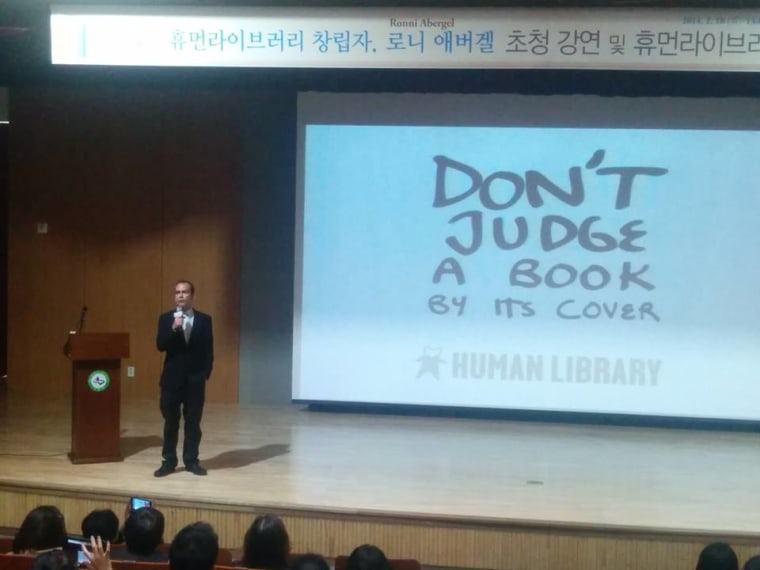
"I had enough common sense to realize that if I continued in this direction, my life would end poorly," Abergel said. "That experience changed my life because it forced me to leave the circles that were negatively influencing me."
RELATED: Arizona libraries add public health nurses
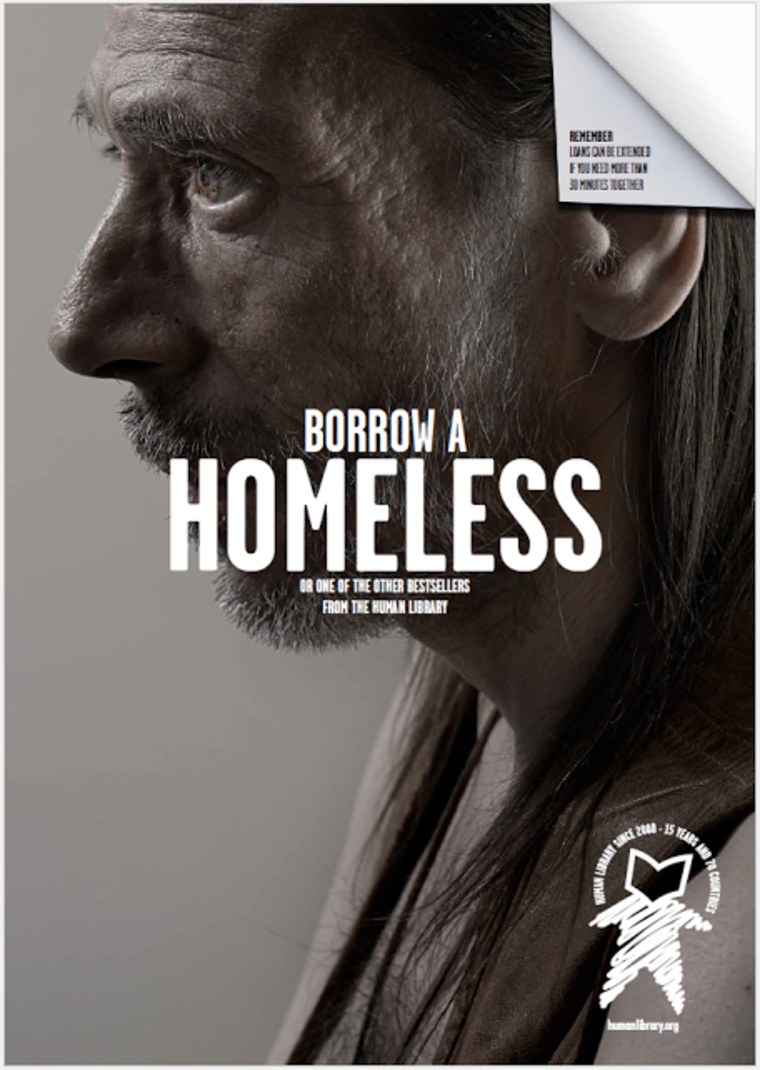
He returned to Copenhagen in 1990 feeling a greater respect for those different than him. After finishing school in 1993, he and his friends started Stop The Violence, an organization that raised violence awareness. His work eventually led him to create the Human Library Organization.
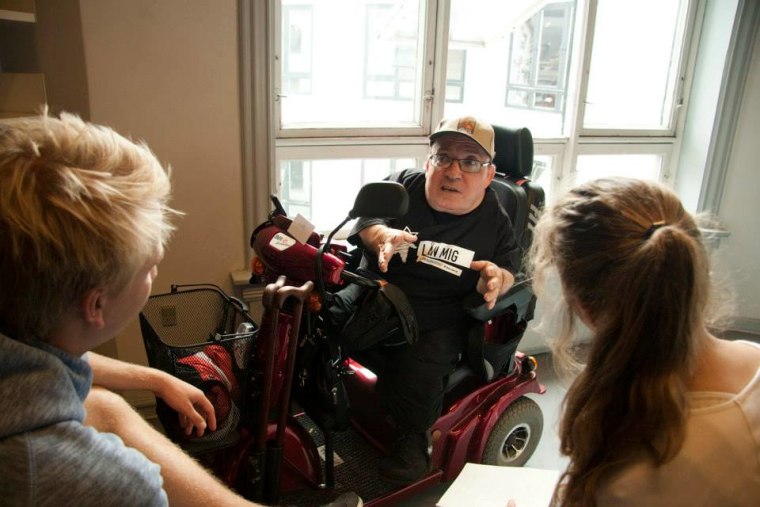
"Sometimes you see someone in the supermarket and think things about them, but you don't dare go ask them questions," Abergel said. "I wanted to build a space where you can ask them anything because they volunteered to answer."
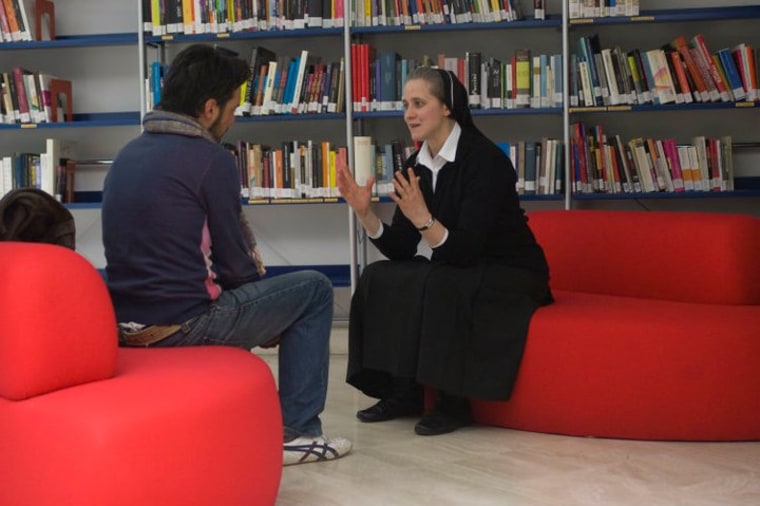
When the Human Library came to St. Norbert College in De Pere, Wisconsin, on Feb. 25, Sarah Griffiths, who works at the college's Center for International Education, brought her two sons, ages 11 and 13, to check out a book titled "International Woman, Leader of Color, Gender Justice."
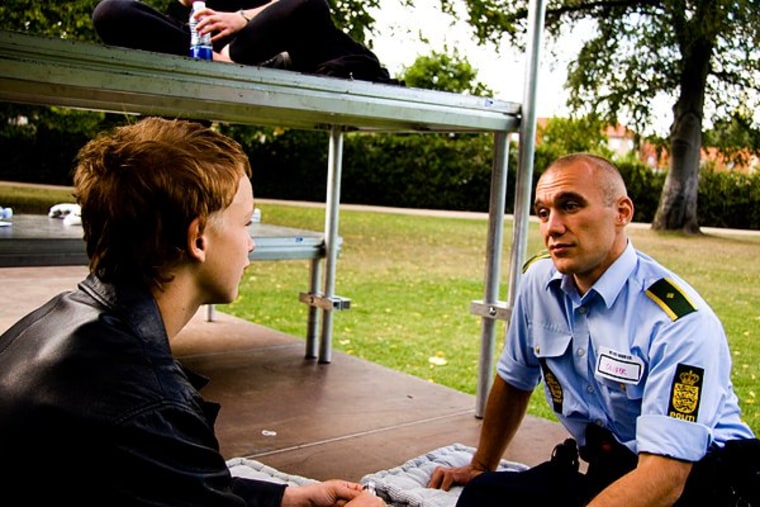
"When else would my sons get the opportunity to hear a woman from Ghana speak about her experiences with racism after moving to the predominantly white city of Green Bay, Wisconsin?" Griffiths, 47, told TODAY.com.
Adam Jackson, a black man adopted by a white family at 6 months old, volunteered himself as a book at that same event at St. Norbert College.
RELATED: Honest boy writes sweet apology to library about page ripped out of his book
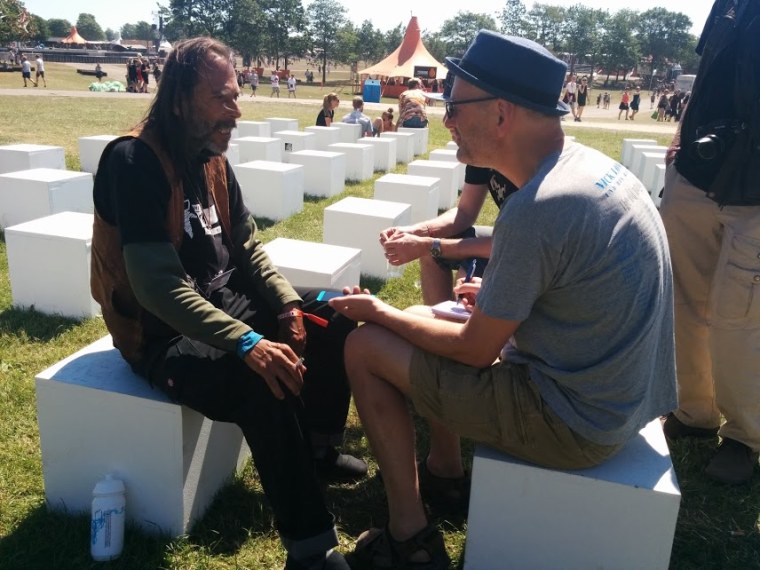
"It was harder than I thought it would be to share my story," Jackson, 41, told TODAY.com. "I did get a bit emotional, but I'm so happy I had the opportunity to enter the conversation on diversity in a meaningful way."
While the Human Library does exist in the United States, Abergel wants to expand and hopes to introduce the concept to all 50 states, with his main focus on a Brooklyn office.